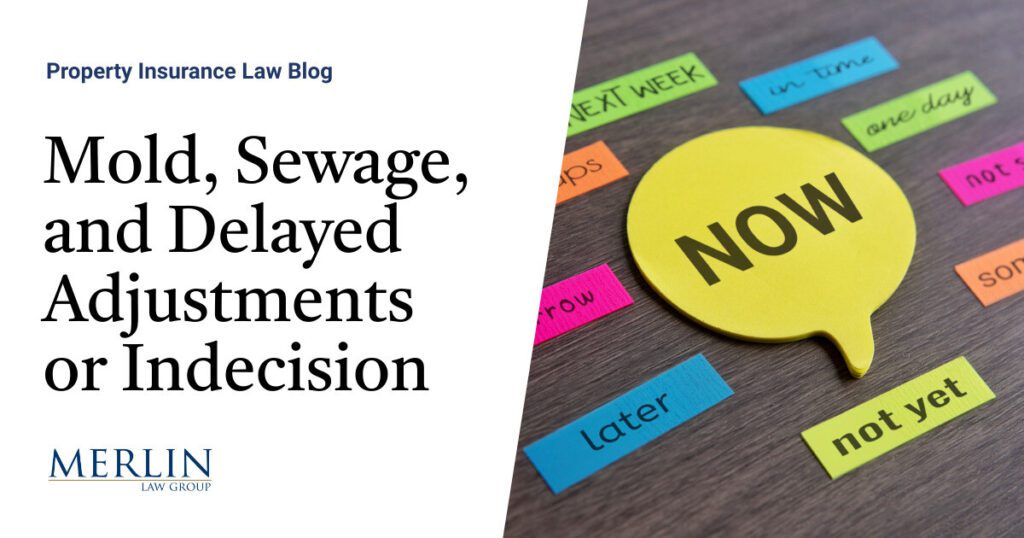Mold, Sewage, and Delayed Adjustments or Indecision

Why do claims adjusters take so long to make decisions when decisions need to be made right away? This was a question racing through my mind while reading an Order in Radius Marketing Group, Inc. v. Continental Casualty Company, 1 a bad faith case denying the insurers’ motion to dismiss. The case is still ongoing, but the factual allegations of delay and indecision by adjusters and their consultants investigating is something now commonplace.
The loss was caused by a septic line that burst underneath the concrete floor of the warehouse, causing raw sewage and septic effluent to flood the warehouse and damage Radius’ products, and the loss was reported that day. The court went through a lengthy analysis of the facts, specifically noting dates and activities regarding the adjustment.
I would invite readers to read the attached facts of the case in the Order. The issues are common in claims adjustment regarding wet materials with dirty water and sewage. The damaged area and contents usually need to be remediated and removed to prevent further damage and cross-contamination of other areas. When insurance companies have low coverage limits of resultant mold damage, their adjusters seem to take forever to make decisions and allow the removal of contents.
Radius’ bad faith argument is that the insurance company adjusters and consultants agreed there was covered sewage damage but took so long doing so that significant additional damages needlessly resulted.
The court agreed that the allegations, if proven, would provide for a bad faith action under Massachusetts law. It especially noted the issue of delay:
Furthermore, there is a direct relationship between the presence of raw sewage and the presence and growth of mold. ….Thus, there may be unfairness or deception in alleging that the presence of mold in the aftermath of a sewage spill justified the invocation of the mold-exclusion provision.
That is particularly true in light of the alleged delays in the process of assessing the contamination. The complaint alleges that defendant at first denied that some portion of the warehouse contents was subject to coverage and, once it became clear that those contents were compensable, invoked the mold exclusion….(‘[I]t took from March, 2023, to June, 2023, and the additional findings by Envirotest to obtain consensus that all of the product in the Leased Premises was contaminated and therefore worthless.’) …Put simply, it is undisputed that the sewage spill itself gave rise to coverage; arguably, it was unfair and deceptive for the insurer to delay until the spill resulted in mold damage, and then to invoke the mold exclusion.
The Order has an excellent discussion of Massachusetts bad faith law, and the case is far from over. However, the reason why it is worthy of study is that the policyholder has a valid cause of action to hold an insurer accountable for claim delay in a very common loss and adjustment scenario.
The old saying is that speed kills. The same thing can be said of delay and indecision.
Thought For The Day
More is lost by indecision than wrong decision. Indecision is the thief of opportunity. It will steal you blind.
—Marcus Tullius Cicero
1 Radius Marketing Group, Inc. v. Continental Cas. Co., No. 21-10106 (D. Mass. Aug. 16, 2024).



